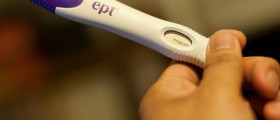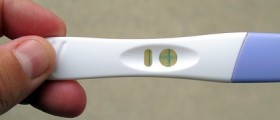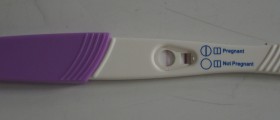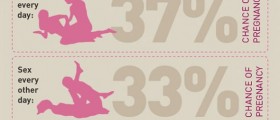
Birth control is a set of commonly used methods to prevent pregnancy. There are many different methods of birth control, including hormonal contraception such as "the pill." Contraceptive pills are usually very effective and, if used correctly, the rate of their effectiveness is somewhere around 99.9%. This means it is practically impossible to conceive while using birth control pills. On the other hand, this is true only if the woman uses the pills correctly and by the schedule. Skipping just one or two pills in a course of a month could be enough to make the pregnancy possible.
How does the contraception pill work?
In a nutshell, the birth control pill works by preventing ovulation. Normally, the pregnancy occurs when an egg released from the ovary, in the process of ovulation, becomes fertilized by a man’s sperm. The delicate processes during the menstrual cycle of a woman are completely dependent on hormones. This means that hormones control the release of an egg from the ovary and prepare the body to accept the fertilized egg. Contraceptive pills contain small quantities of synthetic hormones: estrogen and progestin, which are able to prevent the body’s natural hormonal events. Because of this, ovulation does not take place and the eggs are not being released by the ovary. Hormonal contraceptives also change the cervical mucus to make it difficult for the sperm to find an egg, or change the lining of the womb in order to prevent implantation.
Stopping birth control pills
Women who are planning to get pregnant are first advised to stop taking their birth control pills. After a woman stops taking the pill, she may have only a two-week delay before she starts to ovulate again. Once when the ovulation resumes, woman can get pregnant again. It is not important for how long she was on pills. The body will restore the normal hormonal levels just a couple of days after the last pill. Body begins producing hormones to initiate menstrual cycles. The body usually gets into the normal menstrual cycle within two to three months after stopping the pill.
If the period doesn’t resume after a couple of months, woman may be diagnosed with post-pill amenorrhea. The reason for lack of menstruation in these women is that the body is just taking longer to produce the hormones necessary for ovulation and menstruation. However, women are advised to see their doctors in this case and exclude all of the other reasons such as pregnancy or diseases.

















Your thoughts on this
Loading...